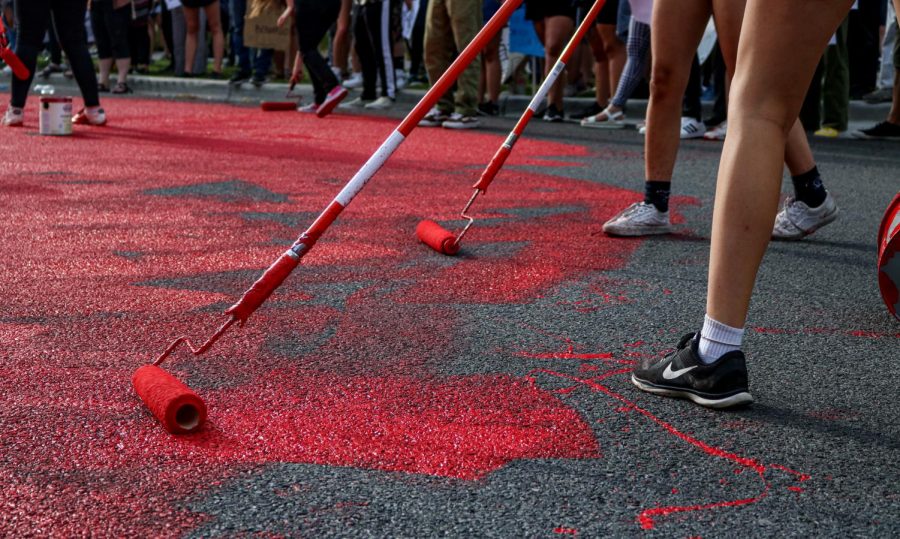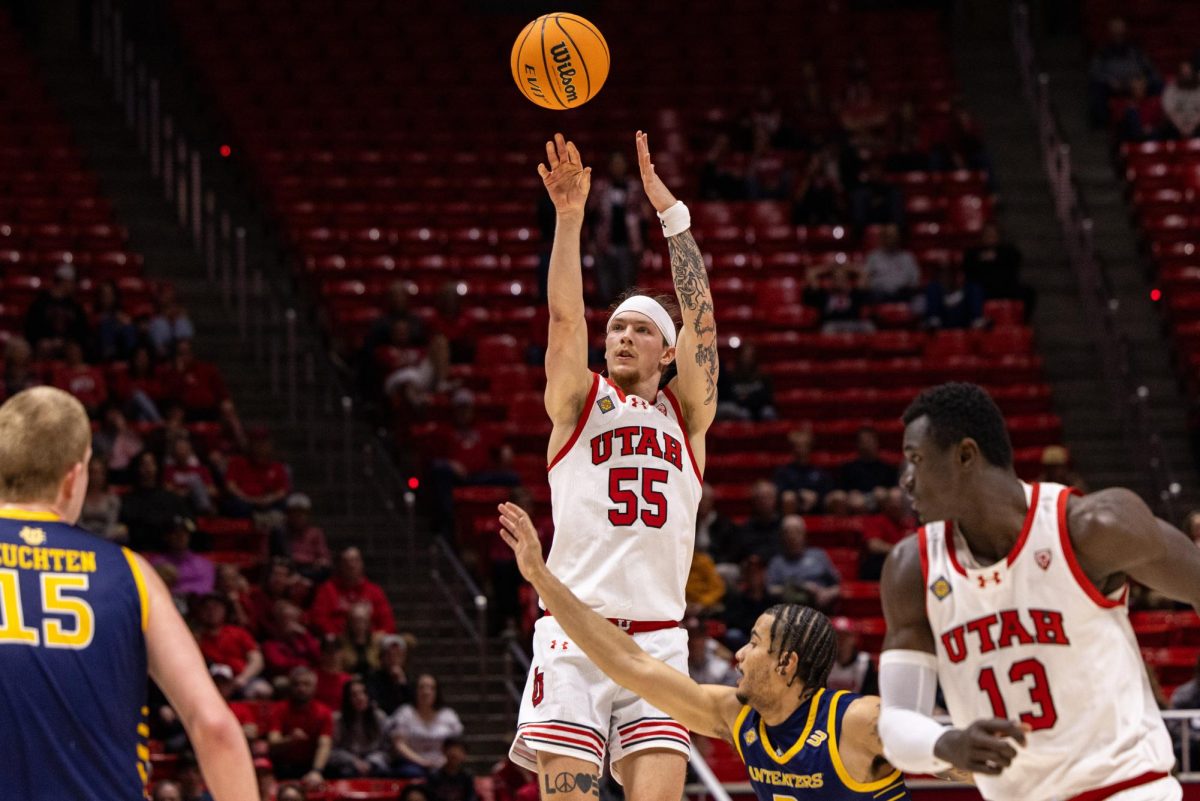Cushman: Our Laws Shouldn’t Criminalize Protest
Protesters paint the streets red, to illustrates all the blood that has been spilled by the police at the District Attorney’s Office in Salt Lake City on June 27, 2020. (Photo by Ivana Martinez | Daily Utah Chronicle)
August 17, 2020
Madalena McNeil, a 28 year-old Utah resident, was one of many protesters who took to the streets following the Salt Lake County District Attorney’s decision not to bring charges against the officers who shot and killed Bernardo Palacios-Carbajal. Along with other protestors, McNeil is now facing a potential sentence of life in prison “if they are convicted of splashing red paint and smashing windows during a protest.” Prosecutors all over the country have been charging protestors with felonies for years, but especially since the beginning of mass protests against police brutality earlier this summer. These arrests are justified with claims of rioting, but arresting and prosecuting protesters with such harsh charges violates intrinsic principles of our democracy.
The protests in Salt Lake City over Palacios-Carbajal’s death and others like it nationwide are ultimately about police brutality and the lack of racial equality in the United States, both significant threats to democratic governance. By allowing police to kill without proportionate consequences and then prosecuting those who protest the decision, as District Attorney Gill is doing, our government sends the implicit message that police should be able to act as “judge, jury, and executioner.” Our nation was structured around the separation of powers, the idea that certain parts of the government should be responsible for different things to avoid tyranny and preserve civil liberties.
Allowing police to act without accountability threatens our democracy by concentrating the power of our justice system — a system designed to ascertain guilt and issue fair punishments — in the hands of individuals. It is why a black person in Utah is seven times more likely to be killed by police than a non-black person. Government officials need to be held accountable so they respect our liberties and treat us equally under the law. Democracy assumes some degree of equality between each of us and it functions best when we all have equal voices. But that cannot happen as long as police are allowed to kill Black, Indigenous and people of color at higher rates than white people.
On top of that, the right to protest is built into the foundation of our country. It should be unalienable. It is one of the first rights protected in the Constitution because our founders knew of its critical value. The right to free speech and assembly is still important today. It allows constituents an additional way to access their government and promote change in a hands-on way outside of the voting booth.
Despite how necessary and fundamental this right should be, some rioting amid largely peaceful protesting has been used as justification to strip Americans of their civil liberties. Mass arrests and escalation by police have become commonplace as protests have continued. Over 10,000 people were arrested in the first few weeks of George Floyd protests, over 40 of which were arrested in Salt Lake City. In Portland, federal officers driving unmarked vans arrested and detained numerous protesters. Four people unlawfully arrested in Phoenix are now facing federal deportation as a result of their improper arrest.
Many of these arrests will not result in charges, but the consequences are all too real. Our neighbors are facing family-destroying legal consequences for acts as mild as vandalism in protest of unpunished murder. There is irony in the fact that the officers who shot at Palacios-Carbajal 34 times will be facing no charges while those who united to protest Palacios-Carbajal’s brutal murder may have their lives ripped away from them.
Speaking to District Attorney Gill’s charging decision, Utah Sen. Daniel Thatcher said that the statute being used to prosecute protestors so harshly was not intended to criminalize protest. The Utah Legislature needs to update the law to decriminalize protests and prevent statutes from being twisted to infringe on our civil liberties. Allowing protesters to exercise their constitutional rights without fear of severe legal consequences is vital to promoting democracy. As Americans, we deserve a government from which we can demand change without further persecution. We deserve a government with which we can interact without fear of going to prison.








